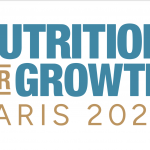The global population is expected to reach nearly 10 billion by 2050, creating increased demand for sustainable sources of dietary protein. Accurate measurement of protein quality ensures evidence-based and efficient policies and programming are aimed at improving nutritional security and health promotion.
On 30 May 2025, leading experts in the fields of protein science and global nutrition shared the latest research findings pertaining to the protein quality of foods and diets at, “Dietary Protein for Global Human Health,” a satellite session held in conjunction with the American Society for Nutrition (ASN) Annual Meeting, NUTRITION 2025, in Orlando, Fl.
Much of the research presented was derived from Project Proteos, an initiative aimed at developing a more reliable method for determining the Digestible Indispensable Amino Acid Score (DIAAS) value of food proteins. Project Proteos, overseen by Distinguished Professor Dr. Paul J. Moughan of the Riddet Institute, hosted by Massey University, included work from protein scientists in France, the Netherlands, New Zealand, and the United States. Over six years, their research examined DIAAS values in local foods and underscored the significance of protein quality in sustainable, healthy diets.
Key findings presented at the session included:
- The population and proportion of older adults is growing rapidly, particularly in low- and middle-income countries, creating increased demand for dietary protein.
- Humans require indispensable amino acids (IAA), provided by dietary protein, for growth, development, and health across the lifespan.
- Not all dietary proteins are created equal; protein quality varies depending on digestibility, bioavailability, and utilizability of IAA.
- High quality dietary proteins are those that efficiently deliver utilizable IAAs.
- The Food and Agriculture Organization (FAO) of the United Nations recommends using the DIAAS method to assess protein quality and is launching a publicly available database containing the DIAAS values of food proteins later this year.
- The growing pig is a validated, practical model for determining DIAAS values in human nutrition. DIAAS values determined utilizing data from growing pigs will be included in the database hosted on the FAO website.
- When data are corrected for protein quality, it will become evident that many people – especially in vulnerable population groups – do not meet IAA requirements.
- Adoption of DIAAS in nutrition science and policy can support more accurate assessment of the protein quality of foods and support better-informed decision making for ensuring sustainable diets and food systems.
The satellite session was programmed as a follow-up to the international symposium, “Dietary Protein for Human Health” co-organized by the FAO, the Riddet Institute, Massey University, Wageningen University and Research, and the International Atomic Energy Agency (IAEA) that was held in Utrecht, the Netherlands in September 2023. Researchers shared their latest findings as well as an article collection that was published in Frontiers in Nutrition.
Attendees were informed of the latest updates to the FAO-IAEA Database on Ileal Digestibility of Protein and Amino Acids in Foods that will be hosted on the FAO website for use in policy and programming aimed at utilizing protein quality to help ensure nutritional security and health.
This session, a valuable contribution to the nutrition science community’s understanding of the role of high-quality protein in sustainable healthy diets, was co-chaired by Dr. Hans H. Stein, Professor of Animal Science at the University of Illinois, Urbana-Champaign and Distinguished Professor Moughan. The program was sponsored by National Pork Board, the Beef Checkoff, Simply Good Foods, and the Nutrient Institute and coordinated by Global Dairy Platform.





